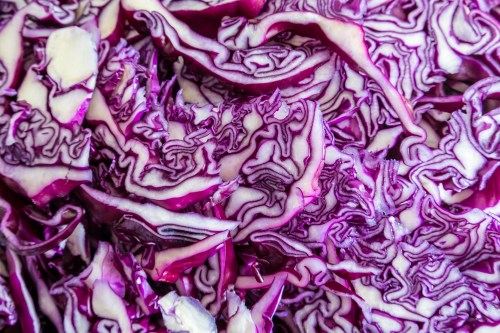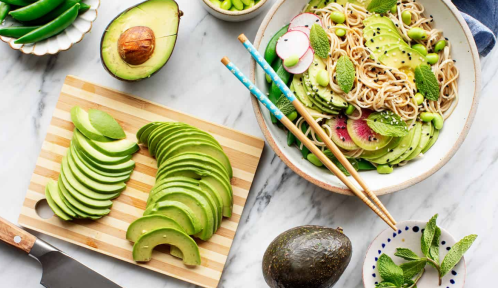I get asked about my cultural background more than most people—in large part, I suppose, because I look ethnically ambiguous. I’m equal parts Filipino and Ashkenazi Jewish, but since my upbringing barely scratched the surface of either’s heritage, these markers of identity have largely been more based in DNA than anything else. My mom never cooked Filipino dishes (or any food, for that matter) or shared anything specific about her homeland. Meanwhile, I didn’t go to Hebrew school or have a bat mitzvah, so I was similarly left in the dark about many what’s and why’s of Judaism. Technically, I was Jewish… just with a strong emphasis on the ish.
With that said, my familiarity with this culinary lineage was a bit more robust. I was no stranger to Jewish deli fare (like pastrami on rye and hearty roasted brisket), knew that apples and honey indicated a sweet new year for Rosh Hashanah, and indulged my sweet tooth with gelt during Hanukkah. But I never stuck to a kosher diet even though I wasn’t allowed to eat pork or mix milk and meat… which I still did whenever I got the chance. Clearly, my faith skewed less Jew and more “you do you.”
For this very reason, the fact that I moved to Israel after college came as a shock to pretty much everyone I knew—myself included. (I wound up becoming the poster child for the Taglit-Birthright program; what was supposed to be a 10-day trip around the country evolved into a handful of flight extensions, a trip back to New Jersey to stuff my suitcases to the brim, and eventual Israeli citizenship.) For the record, my expat status had nothing to do with religion and was instead driven by the thrill of enjoying my early 20s somewhere new and exciting. Plus, it definitely didn’t hurt that the new city I called home was situated on the glistening Mediterranean Sea.
When it was time to sign a lease, I was lucky enough to settle down in Kerem HaTeimanim (the Yemenite Quarter) of Tel Aviv. Not only is it a five-minute walk from the beach, but also nestled alongside Shuk HaCarmel—the city’s famous outdoor market—with dozens of stalls, storefronts, and casual eateries just begging to be explored. Naturally, the Kerem had amazing restaurants offering authentic Yeminite fare as well—my favorites being marak Teimani (beef soup) and hawaij spiced coffee. (Based on my skin tone, some locals even thought that I was Yemenite-Israeli myself, though my subpar Hebrew skills quickly proved otherwise.)
At first, I was surprised that there were few Ashkenazi–style delis, the staples of which comprised the bulk of my knowledge around Jewish cuisine. Instead, I discovered that Israel’s culinary scene was much broader, incorporating foods, drinks, spices, and other ingredients influenced by its geography on the Mediterranean and in the Middle East, as well as all pockets of the world from which Jewish people hailed. Even more surprising was that my carnivore self would come to love all kinds of plant-based foods—most of which I’d never tried until then and remain my favorites to this day. Freshly prepared hummus with a dollop of tahini and extra spicy zhoug, fried eggplant in a warm pita stuffed to the brim with salads and seasonings aplenty (aka sabich), and the world’s best roasted cauliflower from chef Eyal Shani… I’m looking at you.
This food was fresh, financially feasible on my modest budget, and freaking delicious. Somehow, I felt that I won the Jewish jackpot, at least where food was concerned. It’s also worth mentioning that I’d never even cooked before the sights, smells, and tastes of the city enticed me to try. Within months, I’d develop my own shakshuka recipe that I preferred over award-winning varieties from restaurants across Tel Aviv, neighboring Jaffa, and beyond. And before you chalk this last statement up to chutzpah, the fact that I could cook edible food—let alone with confidence—was something I hadn’t anticipated given that I’d barely even turned on an oven before.
Such delicacies aside, living in Tel Aviv also helped me to grasp—and for the first time truly understand—the joys of ritual and gathering over food. (Things were never solid on the home front and family dinners weren’t a thing; in my teens, I subsisted on delivery and nibbling on packaged foods at random, and these patterns stuck with me through college.) Again, though I’m by no means religious, hanging out with friends for Shabbat dinners as the hustle and bustle of the city simmered down are among my most cherished memories.
Throughout my six years living in Tel Aviv, I was also fortunate enough to babysit for a few wonderful families—one of which allowed me to experience a completely new world of food-adjacent Jewish customs. I’d sometimes do overnight stints on the weekends, and since they’re Modern Orthodox, I’d sit in on the full Shabbat ritual (candle lighting, prayer reading, etc.) before enjoying platefuls of elaborately prepared, incredibly delectable (and yes, kosher!) meals with the kiddos and parents. I even traveled abroad with them for a few fancy Passover retreats. Sure, at times I’d feel like a fraud for not being observant myself and remaining clueless about the nuances of certain rituals. But more than that, I was grateful to be adopted, in a sense, and for the first time experience how families—Jewish or otherwise—create happy memories and express love through feasts.
It might have taken a couple of decades, a bunch of flights, and countless forays into unknown territory to explore and appreciate my Jewish roots to the fullest. But as the saying goes, better late than never. To this day, my palate and sense of self are all the richer.
Sign Up for Our Daily Newsletter
Get all the latest in wellness, trends, food, fitness, beauty, and more delivered right to your inbox.
Got it, you've been added to our email list.











